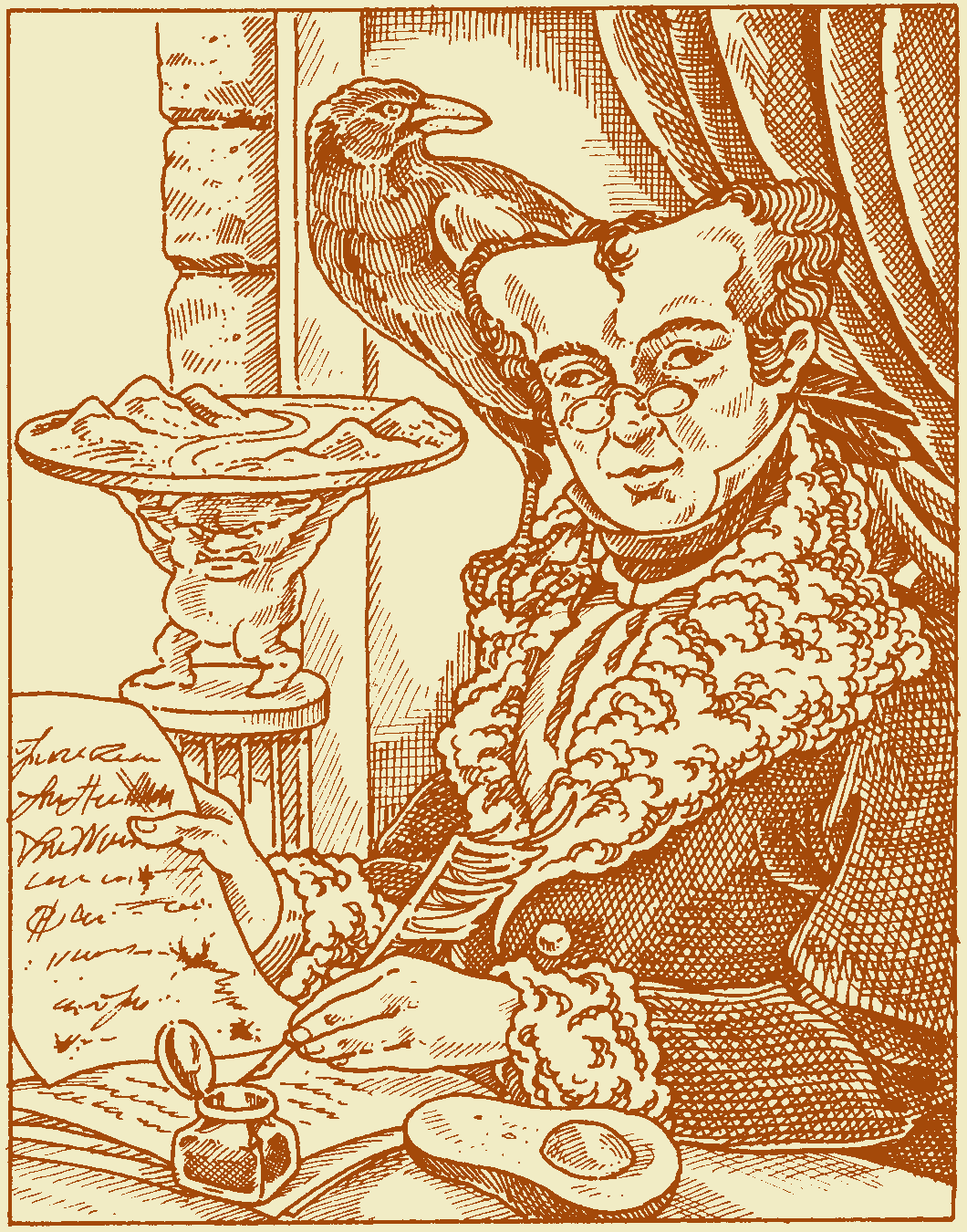 An unspoken Flathead family motto was "quantity over quality," and
no one demonstrated that tenet better than Ralph Waldo, born in 737
GUE. During his 40-plus years of putting pen to parchment, he wrote 912
novels, 4,000 short stories, and an incredible 87,000 sonnets. His
essays have never been successfully counted.
An unspoken Flathead family motto was "quantity over quality," and
no one demonstrated that tenet better than Ralph Waldo, born in 737
GUE. During his 40-plus years of putting pen to parchment, he wrote 912
novels, 4,000 short stories, and an incredible 87,000 sonnets. His
essays have never been successfully counted.Ralph Waldo spent eleven years at Antharia University, collecting a chestful of degress, including three doctorates: Doctor of Idyllic Poetry, Doctor of Excellent Elegies, and Doctor of Octameter Odes. He was very proud of his academic accomplishments, and always signed his name "Ralph Waldo Flathead, D.I.P., D.E.E., D.O.O."
Fresh out of college and flush with the enthusiasm of youth, Ralph Waldo wrote a series of lengthy essays which he hoped would uplift the human spirit. Sadly and inexplicably, these essays lifted little more than the profits of the Frobozz Magic Writing Paper Company. The essays from this period include "On the Benefits of Keeping Ears Clean" and "Why Doorknobs are Necessary." Also during this period, he wrote "On the Discoloration of Roadside Slush," but the manuscript was lost before it could be published, leaving Ralph Waldo disconsolate for years.
During his middle years, Ralph Waldo spent nearly half a decade living in the granola mines of Antharia. It was during this period that he wrote his longest work, a 60,000-verse epic about the varieties of moss that one finds in granola mines. Toward the end of his life, Ralph Waldo specialized in exploring related themes, as brilliantly demonstrated by the four sonnets found by his deathbed:
Sonnet #87,177 "Ode to a Tiny Moist Avocado Pit"
Sonnet #87,178 "Ode to Another Tiny Moist Avocado Pit"
Sonnet #87,179 "Ode to Two Tiny Moist Avocado Pits"
Sonnet #87,180 "Ode to Two Still-Tiny-But-Less-Moist Avocado Pits"
Ralph Waldo died on 14 Mumberbur 789 GUE. An autopsy revealed that the cause of death was an overdose of avocados.
His corpse was later placed in the Tomb of the Twelve Flatheads and his skull upon a pole outside the same crypt by the "Keeper of the Dungeon." Although dead, the Twelve Flatheads foresaw that some cretin might tamper with their remains. Therefore, they took steps to punish trespassers with a curse. It is assumed that his remains are still there to this day.